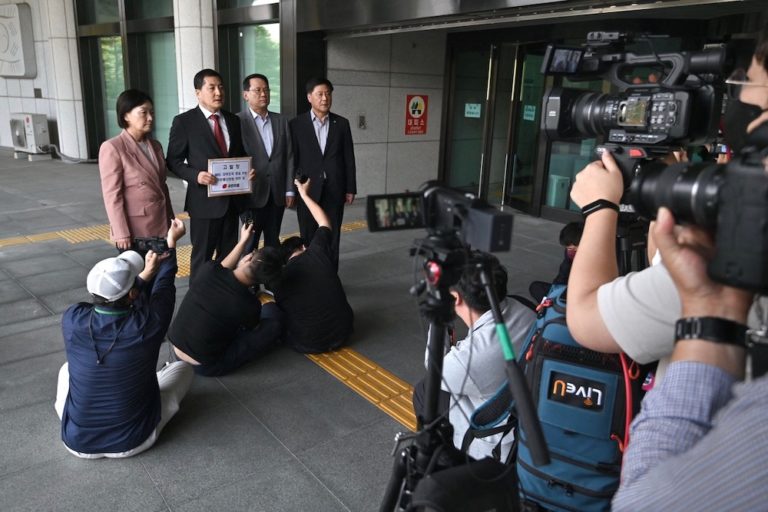(RSF/IFEX) – RSF has voiced shock over the 23 March 2004 arrest and subsequent charging of a 21-year-old student for circulating images on the Internet that poke fun at opposition politicians. The student, who uses the pseudonym Kwon, was accused of posting more than 70 pictures on 15 websites during the current pre-election period. The […]
(RSF/IFEX) – RSF has voiced shock over the 23 March 2004 arrest and subsequent charging of a 21-year-old student for circulating images on the Internet that poke fun at opposition politicians. The student, who uses the pseudonym Kwon, was accused of posting more than 70 pictures on 15 websites during the current pre-election period.
The organisation condemned the application of the electoral law to Internet users who post these types of images on personal websites and discussion forums. The legal action launched against the student constitutes a clear violation of free expression on the Internet, RSF said, especially since the law stipulates that the election campaign does not officially begin until 1 April, two weeks prior to the election.
On 12 March, the electoral law was amended, giving the National Election Commission (NEC) increased powers over the Internet. The law now forces Internet service providers to provide the authorities with the names and addresses of users who are under suspicion.
When the law was amended, the NEC warned that it would henceforth prosecute all Internet users who post messages that are deemed “offensive” to politicians during the election campaign. The NEC also said it would shut down websites displaying such content. At the same time, the impeachment of President Roh Moo-hyun and the calling of elections for April have triggered a wave of political debate on the Internet.
The police said Kwon, who has since been released from custody, was charged with “disseminating false information”. They said he “violated the electoral law by posting pictures on websites other than his personal page, and by letting other Internet users download them.” The posted images included a parody of a video game in which the losing team was replaced by members of the main opposition party and a cartoon strip depicting the same party’s leader as homeless after losing the election.
Many South Korean Internet users are critical of the NEC’s new powers. Choi Nae-hyun, who operates the Mediamob website, said, “Charging Internet users is nothing less then an attack on the people’s right to participate freely in politics.”


